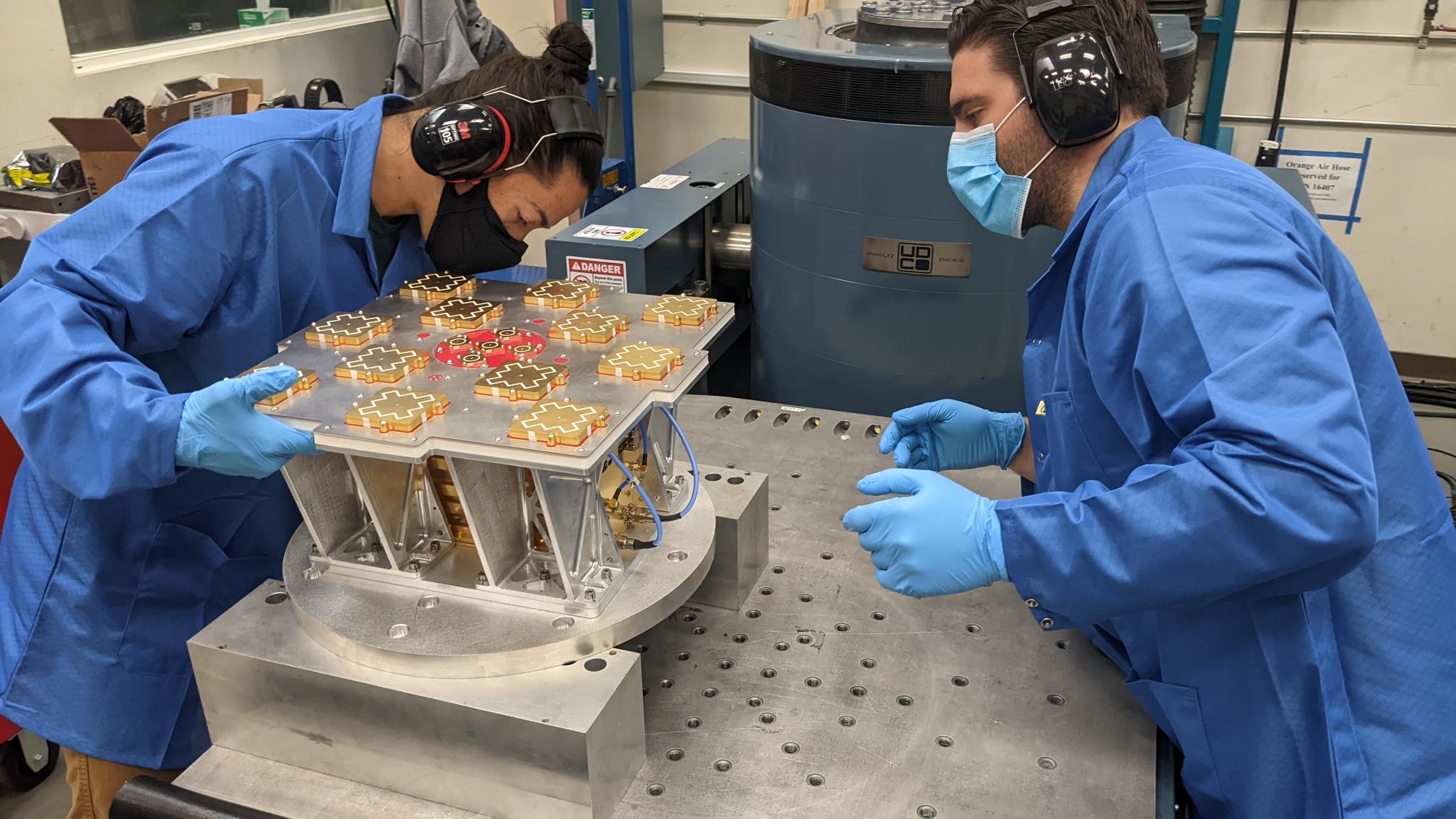
TAMPA, Fla. — Startup Xona Space Systems is preparing to demonstrate services from a test satellite to the first major customer for its planned navigation constellation.
Canadian GPS equipment and solutions provider NovAtel, which said May 31 it has signed up to be an early adopter of Xona’s proposed network of around 300 cubesats, plans to use the in-orbit test bed to configure its technology.
NovAtel is part of publicly listed technology provider Hexagon — which generated about $4.7 billion in net sales in 2021 — and is one of the largest makers of GPS signal receivers.
The company has signed a memorandum of understanding to use Xona’s services while also helping to develop them.
California-based Xona built the test satellite, called Huginn, in-house and it was one of several dozen payloads that SpaceX launched in a May 25 Falcon 9 rideshare mission.
Huginn is still undergoing health checks that it needs to complete before starting demonstrations, Xona CEO and co-founder Brian Manning told SpaceNews June 7. The commissioning phase for a satellite can take several weeks from launch, and this can vary massively depending on the type of satellite and complexity of the mission.
Once complete, Manning said Huginn aims to show the performance advantages its planned Pulsar constellation would have over GPS, and other global navigation satellite systems (GNSS).
By operating in a much lower orbit, Xona says its positioning, navigation and timing (PNT) services would deliver 10 times better accuracy than standard GNSS.
Pulsar satellites are also designed to operate in poor weather that can disrupt ground-based light detection and ranging (LIDAR) solutions for PNT.
Manning said this means a customer would be able to know what lane they are driving in, even when lane lines are not visible, compared to existing GNSS systems that are only accurate enough to show which road their vehicle is on.
The startup sees growing demand for its PNT capabilities in the emerging autonomous vehicle industry, which is one of the markets Hexagon serves.
Manning said Xona has other “various commercial customers who are developing equipment to be compatible” with Pulsar satellites, which he expects to start deploying in low Earth orbit by early 2025.
Lengthy tests required
He said a second prototype satellite Xona is building in-house called Muninn has secured a launch contract for deployment in early 2023.
Huginn and Muninn are essentially twins, although “Muninn will have some internal upgrades based on what we learned from Huginn,” he said.
“With Muninn we plan to expand the geographical regions that we are testing in, and also test more advanced user scenarios on the ground with multiple satellites in view instead of just one,” Manning said.
Xona has raised about $10 million to date and seeks to secure more funds to support its proposed constellation.
Manning declined to comment on whether Xona will seek to outsource production for Pulsar.
For now, he said the startup is focusing on using Huginn and Muninn to ensure its technology can operatively safely in any environment.
“One of the biggest keys to operating a successful satellite navigation system is reliability, especially when you are building a system to support safety critical applications such as autonomous driving,” he said.
“This can be designed in as best as possible, but at the end of the day just requires a lot of test cycles to make sure that when we launch the system can be trusted in applications where failure could have fatal consequences.”
He said Xona’s ground operations systems, satellite systems and end user equipment are all “brand new designs, so each will be tested individually as well.”
Enhancing security
Xona says its GNSS signals will be encrypted, and also aim to be 100 times more resistant to interference or blockage — whether from tree cover and other obstacles or intentional jamming.
Manning said Russia’s war in Ukraine has helped underline the role commercial companies can play in services that governments traditionally provided.
Some of the most compelling images of the war have come from satellites operated by private companies.
“Ukraine really highlighted how much value commercial space can provide in terms of agility and responsiveness to threats,” he added.
“Arguably GNSS is the one that needs this the most and has it the least, and that’s where I think our system can really fill a huge gap there in being able to provide that level of service, essentially, to not only governments but also civilians.”
Xona is not the only company with PNT technology aiming to supplement or replace existing GNSS solutions.
Washington-based Satelles has been providing assured PNT services to back up GNSS since 2016 over Iridium’s satellites in low Earth orbit.
Satelles, Xona and 19 other companies that make hardware or provide services for PNT are part of a group called the Open PNT Industry Alliance, which lobbies to accelerate government efforts to back up existing GNSS capabilities for critical infrastructure.
"Demo" - Google News
June 08, 2022 at 01:32AM
https://ift.tt/30x8AL5
Xona to test GPS-alternative demo satellite with customer - SpaceNews
"Demo" - Google News
https://ift.tt/cfpWk5q
https://ift.tt/OS5qKAI

No comments:
Post a Comment